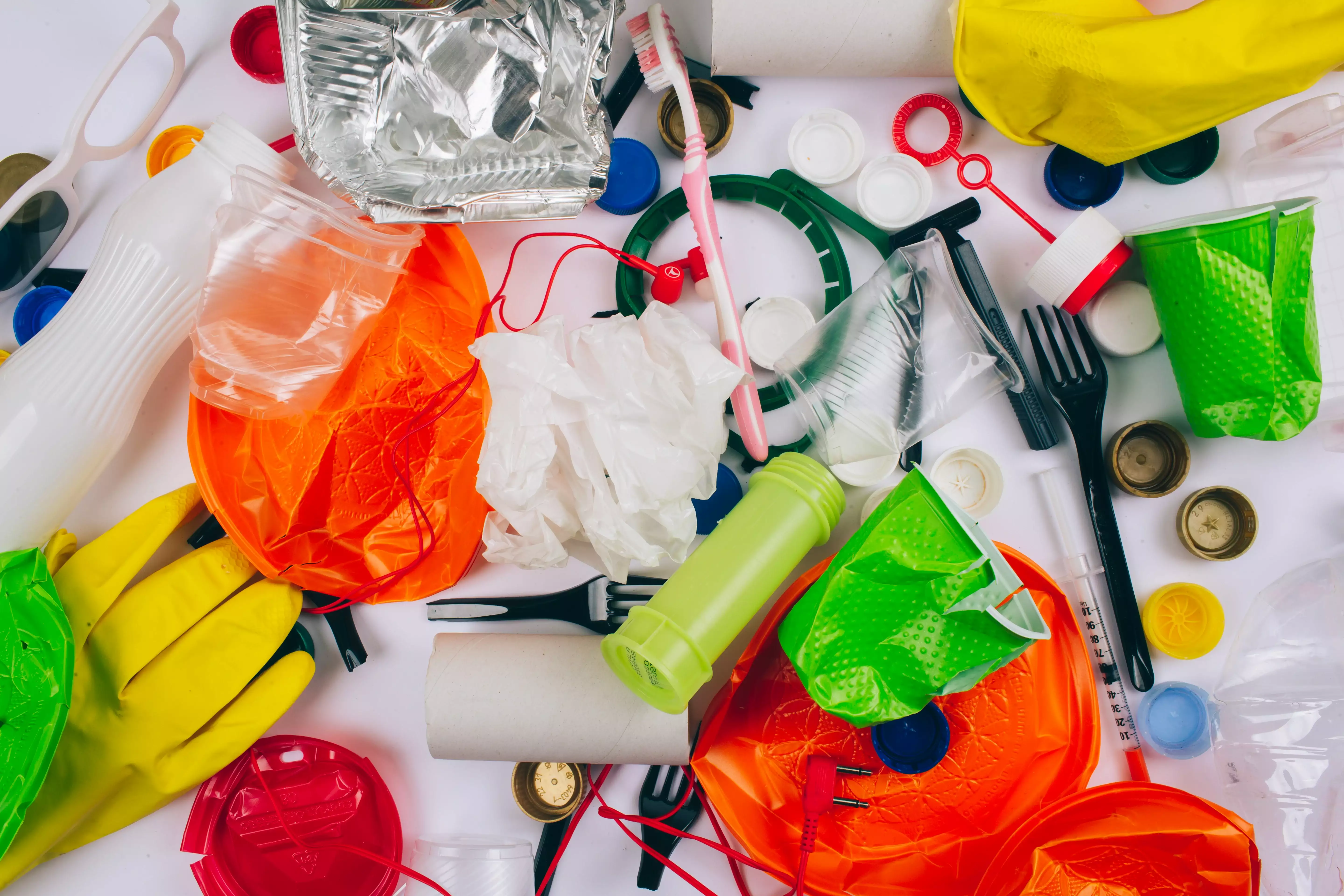
Blog
18th August 2020
Plastics are a group of materials, either synthetic or naturally occurring, that are malleable and can be molded into solid objects. Most plastics contain organic polymers. The Majority of these polymers are formed from chains of carbon atoms, 'pure' or with the addition of oxygen, nitrogen, or sulfur.
These polymer chains have several thousand repeating units (called monomers). Plastics are versatile, hygienic, lightweight, flexible, and highly durable. Polyethylene Terephthalate (PET/PETE), High-Density Polyethylene (HDPE), Low-Density Polyethylene (LDPE) Polyvinyl Chloride (PVC), Polypropylene (PP), Polystyrene (PS) are some of the major polymers used in the plastic industry. The global demand for PVC (for disposable medical devices), PP (for surgical masks), and Polystyrene (for testing) has increased due to the global pandemic.
Single-use plastics are goods that are made primarily from fossil fuel-based chemicals (petrochemicals) and are meant to be disposed of right after use-often, in mere minutes. Single-use plastics are most commonly used in packaging, consumer products, cosmetics, and healthcare. Examples include lightweight plastic bags, disposable utensils, beverage containers, coffee capsules, wet wipes, and razor blades. Generally, plastics are not biodegradable, but instead, break down into smaller and smaller particles. These plastic particles not only persist in the ocean, but they absorb the toxins from the ocean and are then eaten by fish, sea birds, and other marine life. These particles are absorbed into the food web, and over 100,000 marine mammals and turtles die each year because they eat, swallow, or get tangled up in plastics. Plastic bags are considered especially dangerous to marine animals such as sea turtles, who mistake them for jellyfish, the main food source. Currently, 85% of all known species of sea turtles have had reported problems of entanglement or ingestion of marine debris/litter.
Currently, there is an emergence of 250k Covid-19 cases worldwide per day on an average, and there are still many countries where community transmission has not yet started. The cumulative count is over 22 million as on 18th August 2020. The world is highly dependent on plastics to fight Covid-19 in the form of Surgical masks (single use masks are made up of polypropylene), Personal protective equipment (PPE), food delivery to patients. In China, the Ministry of Ecology and Environment estimates that hospitals in Wuhan produced more than 220 tons of waste daily at the height of the outbreak, compared with 40 tons during regular times. A USA based consulting firm predicts that the US could generate an entire year's worth of medical waste in just two months because of Covid-19.
A similar uptick in the waste can be seen among ordinary citizens. In China, daily production of face masks soared to 116 million in February, 12 times higher than the previous month. Hundreds of tons of discarded masks were being collected daily from public bins alone during the outbreak's peak; there is no telling how many more were being dumped in household waste systems. According to the Thailand Environment Institute, in Thailand, plastic waste has increased from 1,500 tons to 6,300 tons per day, owing to soaring home deliveries of food.
With so many uses and applications of plastic, we cannot imagine the world without plastics. But apart from all these benefits, plastics have a significant environmental concern i.e., disposability. We produce roughly 300 million tons of plastic every year, and only half of it is disposable! Worldwide only 10-13% of plastic items are recycled. The nature of petroleum-based disposable plastic makes it difficult to recycle, and they have to add new materials and chemicals to it to do so, which may have their side effects. Moreover, there are a limited number of items that recycled plastic can be used.
Although many countries are trying their best to use various substitutes for plastic, we are still very far away from the day where we can eradicate the use of non-biodegradable plastics. It is their easy availability and low-cost manufacturing, which makes them desirable compared to their substitutes. There are many firms such as BASF SE, PTT Global Chemical Public Company Limited, and DowDuPont, which carry out innovation to use Bio-based polymers which will be bio-degradable and will be able to replace plastics to a considerable extent in the long-run.